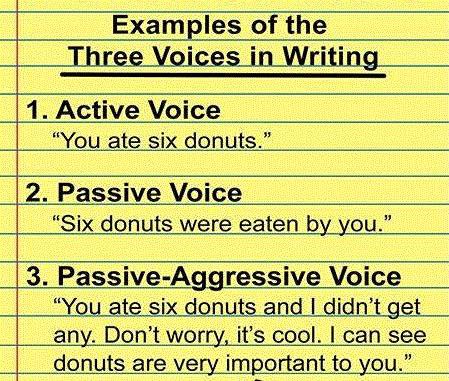| 📝 English Composition Writing FAQ | 1101 • 1102 • 📖 |
Active vs. Passive: The Use of Voice in College Essays
The way we construct sentences in our writing can have a profound impact on how our ideas are received by readers. One of the most common debates in the world of grammar and writing is over the use of passive voice versus active voice. While passive voice has its place in certain contexts, college essays are typically better served by active voice.

Passive voice is a common writing issue in college essays, and it’s important to understand how to identify and correct it. While the passive voice can be useful in certain contexts, overuse can make your writing sound vague, unclear, and lacking in authority.
In grammar, passive voice is a sentence construction in which the subject of the sentence is the recipient of the action, rather than the doer of the action. In other words, the focus is on the thing or person affected by the action, rather than the thing or person doing the action. For example, “The cake was baked by my mom” is in the passive voice because the subject “cake” is not performing the action “baked.” Instead, the action is being done to the cake by the subject “my mom.”
In contrast, a sentence in the active voice has the subject performing the action of the verb. For example, “My mom baked the cake” is in the active voice because the subject “my mom” performs the action “baked” on the object “cake.”
Now that we know what passive voice is, let’s look at why it can be problematic in college essays. The passive voice often makes sentences longer and more complex, which can make it harder for readers to understand your point. It also tends to obscure who is responsible for the action, which can weaken your argument and make your writing less authoritative.
There are, of course, some situations where the passive voice is appropriate, such as when the person performing the action is unknown or unimportant. However, in most cases, using the active voice can help you communicate your ideas more clearly and concisely.
To identify passive voice in your writing, look for forms of the verb “to be” (such as “is,” “was,” “were,” “been”) combined with the past participle of the main verb (such as “baked,” “written,” “created”). When you find these constructions, ask yourself if the subject is performing the action or receiving it.
If you find passive voice in your writing, consider revising the sentence to use the active voice instead. This often involves making the subject the performer of the action and placing the verb in its active form. For example, “The report was written by the team” can be revised to “The team wrote the report.” This not only makes the sentence shorter and clearer, but it also strengthens the team's agency in the action.
In summary, while the passive voice can be useful in certain situations, it should generally be avoided in college essays. Instead, strive to use the active voice to clearly communicate your ideas and strengthen your argument.
Examples
Passive:
- The ball was thrown by Tara.
- Almost always, the ability to read and write is needed.
- Studies are showing that less professionals decide to reproduce.
Active:
- Tara threw the ball.
- Almost always, people need the ability to read and write.
- Studies show that less professionals decide to reproduce.
Progressive Tense
Progressive tense is another type of passive construction. It occurs when you use a to-be verb with the -ing form of the verb, called a gerund, to show that action continues and is not fixed to a certain point in time. For example:
- She is talking with Henry.
- They were eating pizza.
- She has been reading the latest Harry Potter novel.
The progressive tense is often used without thinking, but should only be used sparingly. More often than not the real verb should be used, eliminating the need for the be verb (passive) at all:
- She talks with Henry daily.
- They ate pizza last night.
- She reads the latest Harry Potter novel every night before bed.
Notice that when you eliminate the progressive tense, you must supply a specific time for the sentence to make sense.
Like the passive voice, use the progressive tense sparingly and strategically for specific rhetorical effect. Try to eliminate all unnecessary uses of the to-be verb.
| Written: 2002, 2022; Revised: 04-11-2023; Version: Beta 0.7 | 💬 |
